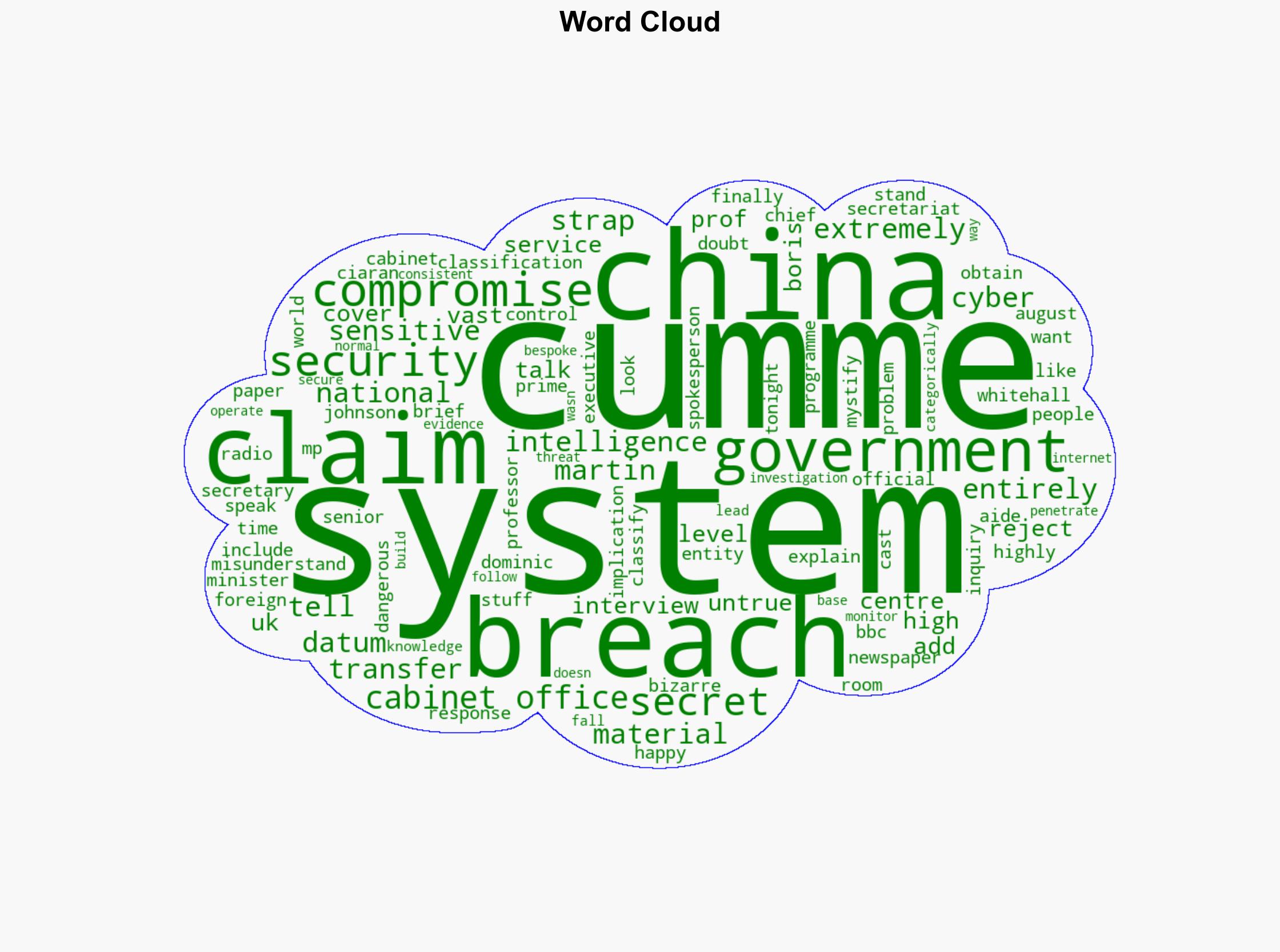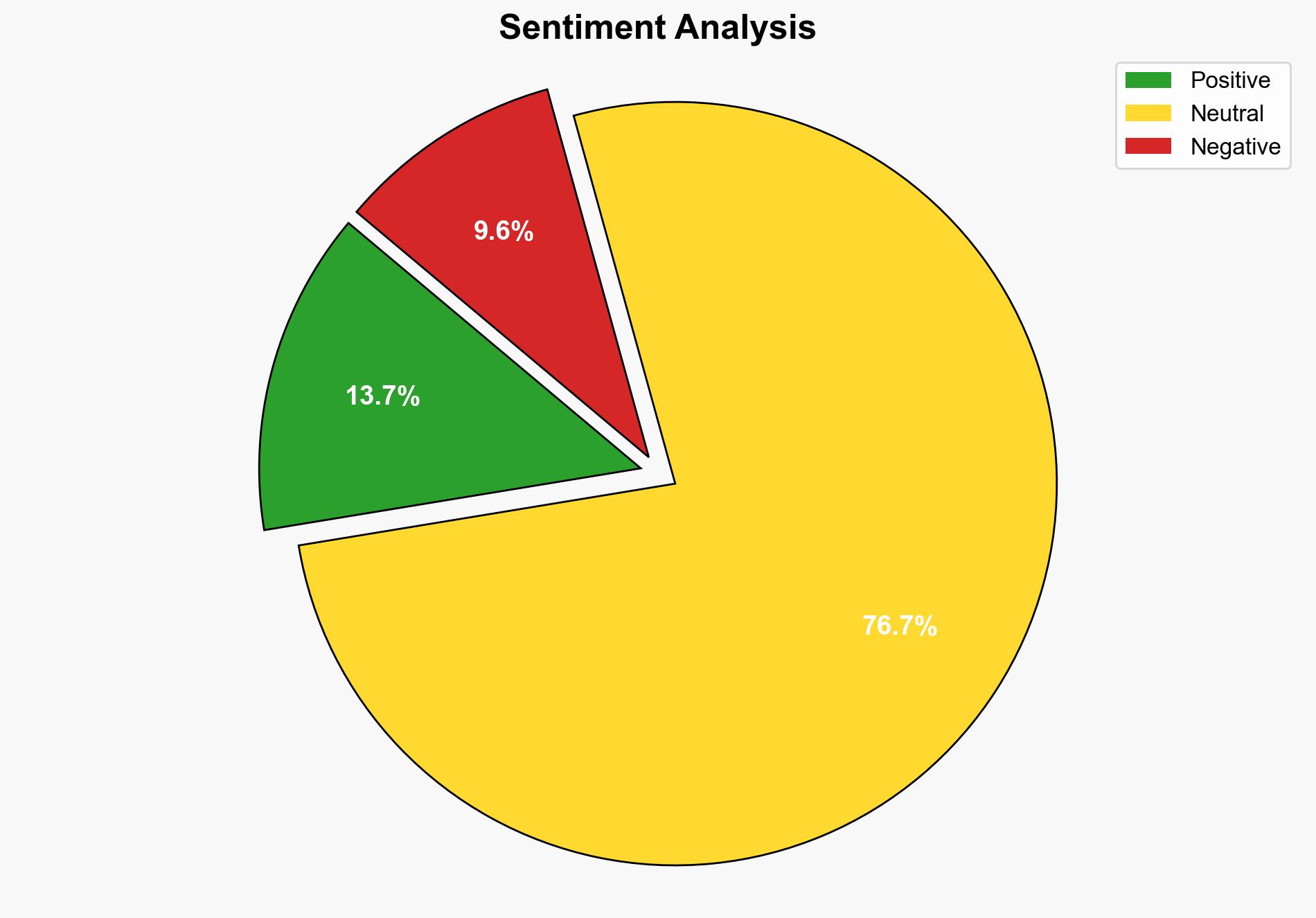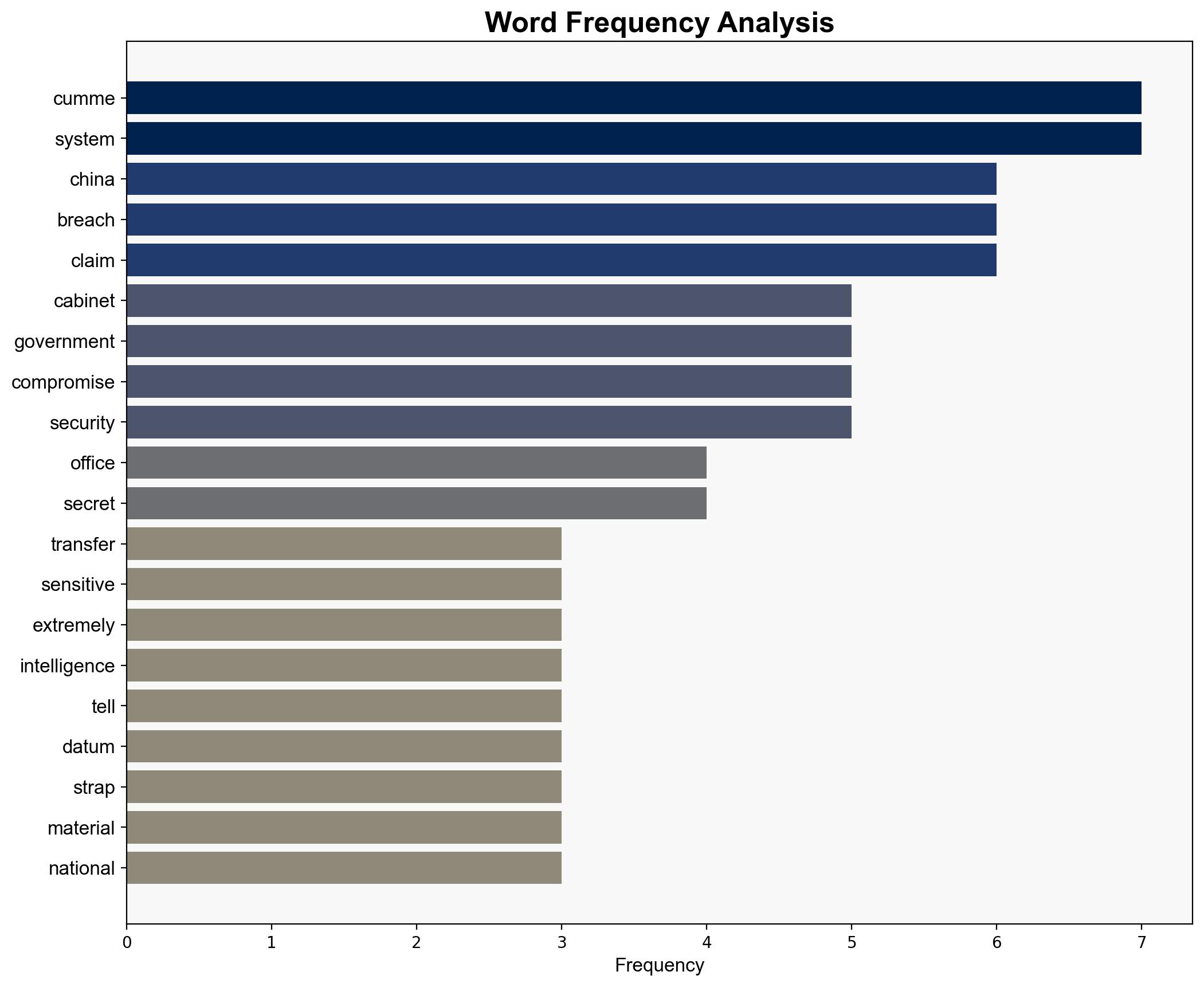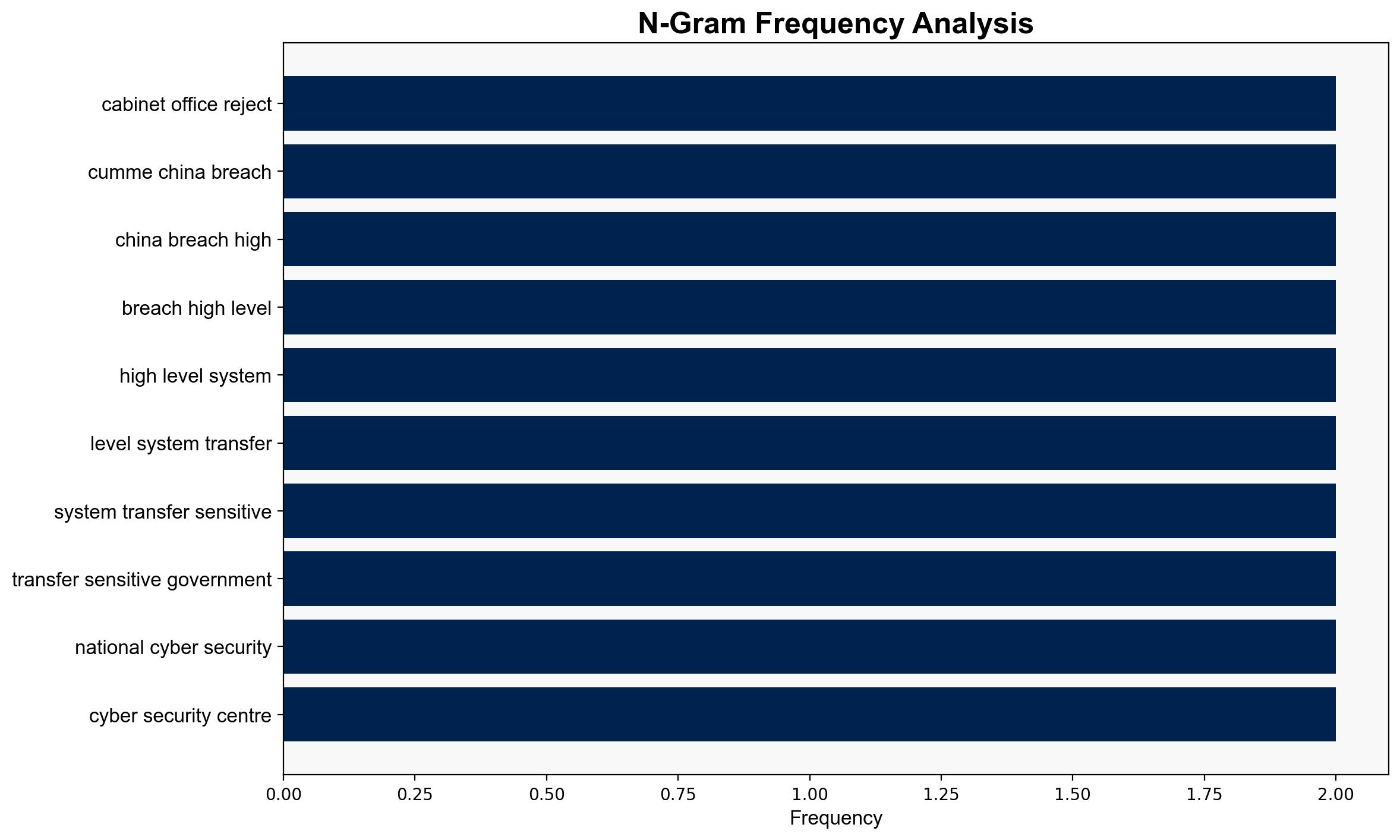Cabinet Office rejects Cummings’ China breach claim – BBC News
Published on: 2025-10-16
Intelligence Report: Cabinet Office rejects Cummings’ China breach claim – BBC News
1. BLUF (Bottom Line Up Front)
The most supported hypothesis is that Dominic Cummings’ claim of a China breach in UK high-level systems is unsubstantiated. This conclusion is drawn with a moderate confidence level due to the lack of corroborating evidence and the categorical denial by both the Cabinet Office and cybersecurity experts. It is recommended to continue monitoring for any emerging evidence or corroborative claims while maintaining current cybersecurity protocols.
2. Competing Hypotheses
1. **Hypothesis 1**: Dominic Cummings’ claim is accurate, and there has been a significant breach of UK high-level systems by China, which is being covered up by the government.
– **Supporting Evidence**: Cummings’ assertion of a breach and his position as a former senior aide could imply insider knowledge.
– **Contradictory Evidence**: The Cabinet Office and cybersecurity experts, including Professor Ciaran Martin, have categorically denied the breach, citing lack of evidence.
2. **Hypothesis 2**: Cummings’ claim is inaccurate or exaggerated, possibly due to a misunderstanding or misinterpretation of information.
– **Supporting Evidence**: Official statements from the Cabinet Office and cybersecurity experts deny any breach, emphasizing the security and monitoring of the systems in question.
– **Contradictory Evidence**: Cummings’ persistence in his claim suggests he believes there is a basis for his assertion.
Using the Analysis of Competing Hypotheses (ACH) method, Hypothesis 2 is better supported due to the weight of official denials and lack of evidence supporting Hypothesis 1.
3. Key Assumptions and Red Flags
– **Assumptions**: It is assumed that the Cabinet Office and cybersecurity experts have full visibility and transparency regarding system breaches. It is also assumed that Cummings’ claim is based on credible information.
– **Red Flags**: The lack of specific evidence provided by Cummings and the strong denials from multiple authoritative sources raise questions about the validity of the claim. The potential for political motivations or personal biases influencing Cummings’ statements should be considered.
4. Implications and Strategic Risks
– **Cybersecurity**: If Cummings’ claim were true, it would indicate a severe vulnerability in UK systems, necessitating immediate cybersecurity enhancements.
– **Geopolitical**: A confirmed breach by China could escalate tensions and impact diplomatic relations.
– **Psychological**: Public perception of government transparency and competence could be affected, influencing trust in official statements.
5. Recommendations and Outlook
- Continue to monitor for any new evidence or corroborative claims regarding the alleged breach.
- Maintain and enhance current cybersecurity protocols to prevent potential breaches.
- Scenario Projections:
- Best Case: No breach occurred, and public trust is maintained.
- Worst Case: A breach is confirmed, leading to significant geopolitical and cybersecurity repercussions.
- Most Likely: The claim remains unsubstantiated, with no further evidence emerging.
6. Key Individuals and Entities
– Dominic Cummings
– Professor Ciaran Martin
– Boris Johnson
7. Thematic Tags
national security threats, cybersecurity, counter-terrorism, regional focus





